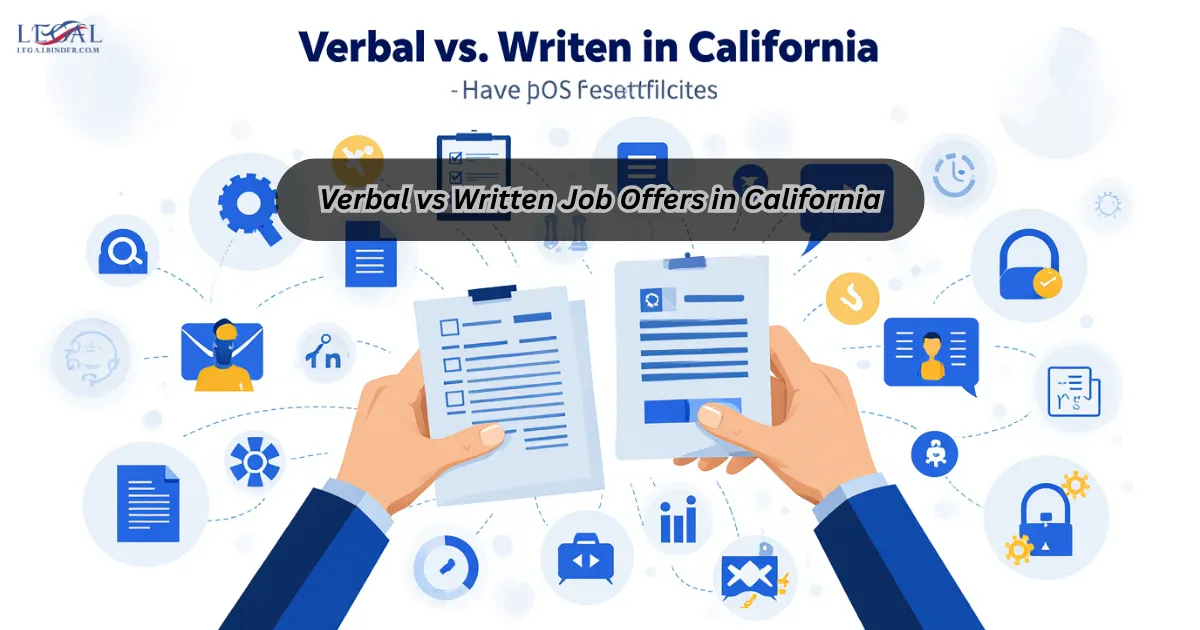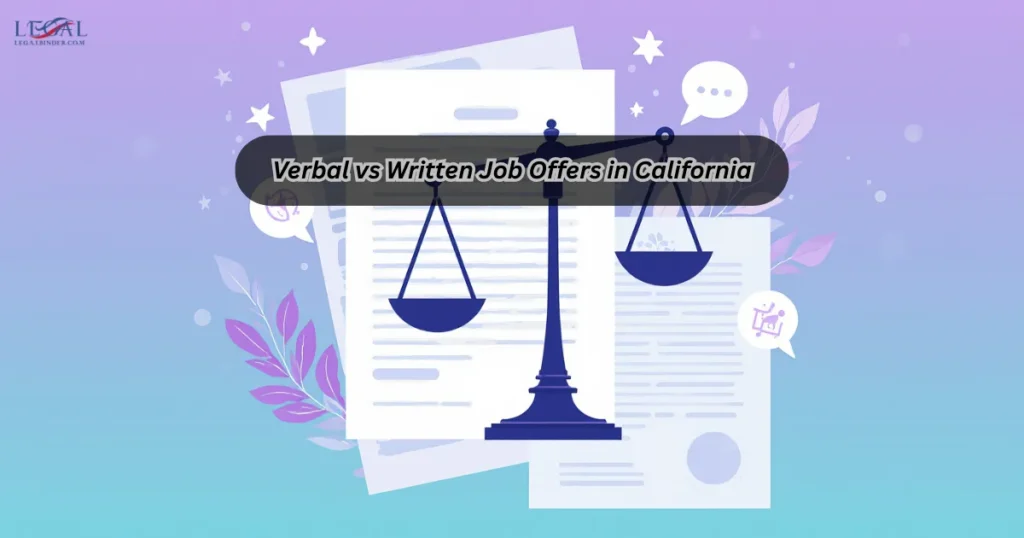Physical Address
304 North Cardinal St.
Dorchester Center, MA 02124
Physical Address
304 North Cardinal St.
Dorchester Center, MA 02124

Starting a new job is one of the most exciting milestones in your career. The anticipation, the recognition of your skills, and the chance to step into a new role can feel like a dream coming true. But when it comes to job offers, especially in California, one critical question arises: should you rely on a verbal offer, or do you need a written one to truly protect your rights? In this guide, we’ll walk you through everything you need to know about Verbal vs Written Offer California so you can make informed, confident decisions that protect your future.

This article is designed with you in mind — whether you’re accepting your first professional role or navigating a career change. You’ll gain clarity, practical insights, and links to reliable resources such as the California Department of Industrial Relations and the Employment Development Department (EDD) to support your journey.
Also, don’t forget to explore more valuable resources on our homepage for practical guides that simplify California employment law.
Verbal offers are common, but they carry risks. Here’s what you need to know:

Written offers are far more reliable and provide legal clarity:
Let’s compare side by side:
| Aspect | Verbal Offer | Written Offer |
|---|---|---|
| Proof | Hard to prove in court | Clear documentation |
| Details | Often vague, subject to memory | Specific, outlined terms |
| Security | Risk of employer backing out | Stronger legal protection |
California law allows employment to begin even with verbal agreements, but “at-will” employment rules still apply. Employers or employees can end the relationship at any time unless a written contract says otherwise. For detailed guidance, refer to the California Division of Labor Standards Enforcement (DLSE).

Yes, verbal offers can be binding, but without written proof, they are very hard to enforce.
Yes, since California is an at-will state, employers can rescind offers unless there’s a written contract specifying otherwise.
A written offer ensures you have clear documentation of all employment terms and protections.
Politely ask for a written offer, and send a follow-up email confirming key terms until it’s provided.
Understanding the distinction between a Verbal vs Written Offer California is essential for your career stability. While verbal promises can feel exciting, they don’t carry the same protection as written offers. By insisting on proper documentation and referencing reliable California government resources, you can safeguard your career and make confident choices.
Always remember: your career deserves clarity, fairness, and respect. Protect yourself by demanding transparency and written proof for every job offer you receive.
Ready to secure your next career move with confidence? Visit our homepage to explore more powerful guides on California job laws and employment contracts.